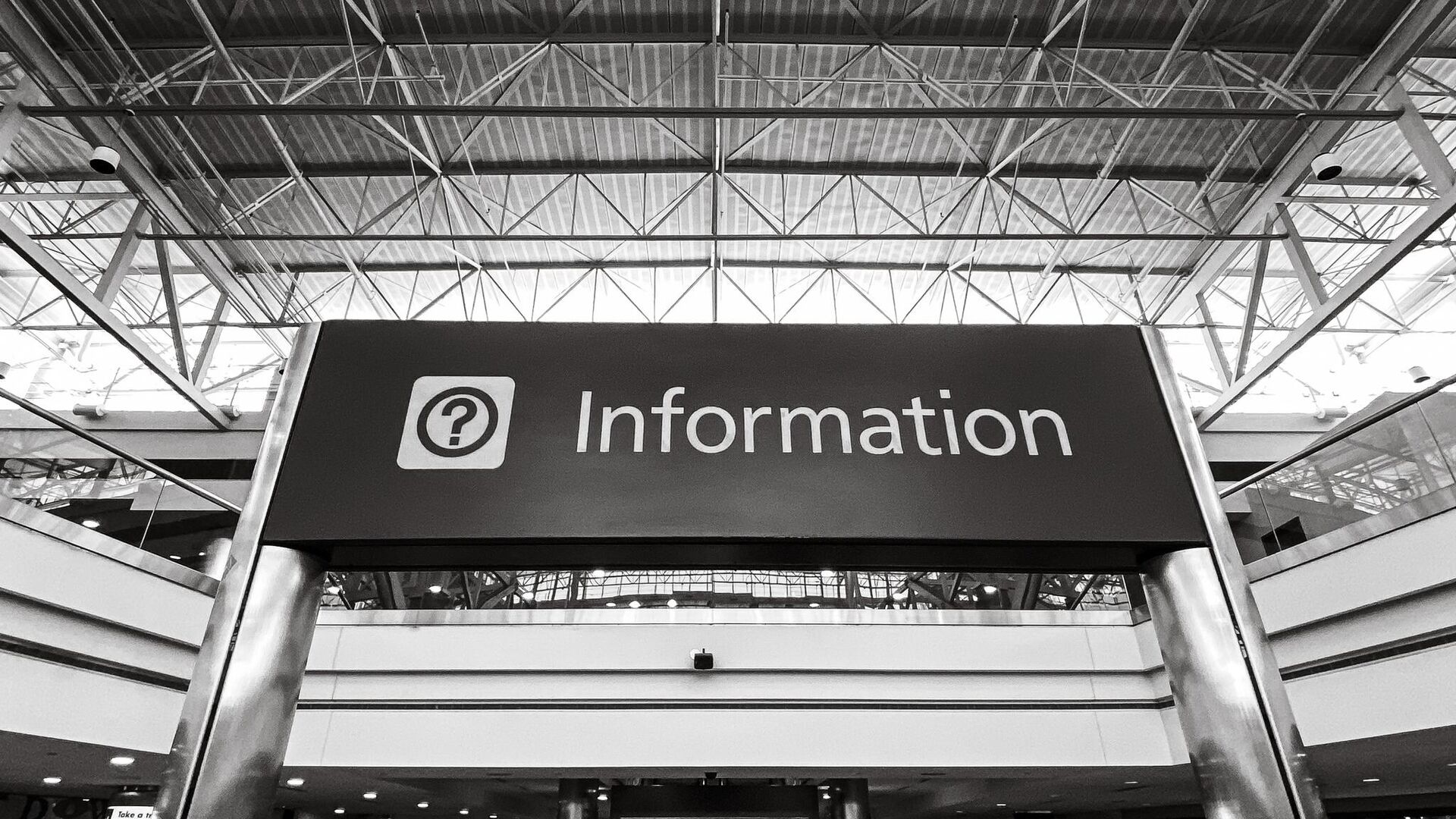https://en.sputniknews.africa/20231126/world-information-day-africans-have-to-tell-their-stories-1063788857.html
World Information Day: 'Africans Have to Tell Their Stories'
World Information Day: 'Africans Have to Tell Their Stories'
Sputnik Africa
November 26 marks the International Day of Information. To mark the occasion, Sputnik Africa engaged with information professionals from South Africa and... 26.11.2023, Sputnik Africa
2023-11-26T09:06+0100
2023-11-26T09:06+0100
2023-11-26T13:28+0100
opinion
africa insight
nigeria
south africa
west africa
southern africa
information
information and communication technology
media
https://cdn1.img.sputniknews.africa/img/07e7/0b/19/1063789219_0:591:2048:1743_1920x0_80_0_0_80b814401ec1696b2317235bad5ff03f.jpg
African people need to independently communicate to the world about the events on the continent, through the lens of their values, Pansy Tlakula, Chairperson of the Information Regulator of South Africa, told Sputnik Africa.The chairperson emphasized the importance of ensuring that the media is indigenous or majority-owned, stating that "those days of the story of Africa being told by other people are gone."Discussing the influence of the media in African countries, Tlakula acknowledged that some publications in Africa focus on anti-government rhetoric and fault-finding. However, she stressed that the media should also disseminate educational materials to "change the lives" of people.Addressing media bans and journalists arrests, Tlakula described these actions as "contrary to international principles of freedom of expression contained in various international and regional human rights instruments."Daniel Adeyemi, a tech journalist from Nigeria, told Sputnik Africa that the mainstream media cannot always cover all aspects of an issue, or provide in-depth analysis, emphasizing the need for diversified information.Adeyemi also stressed the importance of information laws in Africa, which should be enshrined and supported, particularly in making government information more accessible for better dissemination.He made a similar point to Tlakula, stressing the need to promote African voices advocating for platforms where African experts can share their thoughts, offer their own perspectives on issues, and challenge stereotypes and distortions.Lastly, Adeyemi called for better communication between African countries, seeing it as a crucial step for the continent to grow stronger under multipolarity.World Information Day has been celebrated annually since 1994, initiated by the International Academy of Informatization, commemorating the first International Forum of Informatization held on this day in 1992.
https://en.sputniknews.africa/20231116/world-philosophy-day-what-is-decolonization-of-knowledge--why-we-need-it-1063563276.html
nigeria
south africa
west africa
southern africa
Sputnik Africa
feedback@sputniknews.com
+74956456601
MIA „Rossiya Segodnya“
2023
Maxim Grishenkin
https://cdn1.img.sputniknews.africa/img/07e7/0a/17/1063018107_0:0:1104:1103_100x100_80_0_0_03090c85a11f5d2e8a19cf1d989443c9.jpg
Maxim Grishenkin
https://cdn1.img.sputniknews.africa/img/07e7/0a/17/1063018107_0:0:1104:1103_100x100_80_0_0_03090c85a11f5d2e8a19cf1d989443c9.jpg
News
en_EN
Sputnik Africa
feedback@sputniknews.com
+74956456601
MIA „Rossiya Segodnya“
Sputnik Africa
feedback@sputniknews.com
+74956456601
MIA „Rossiya Segodnya“
Maxim Grishenkin
https://cdn1.img.sputniknews.africa/img/07e7/0a/17/1063018107_0:0:1104:1103_100x100_80_0_0_03090c85a11f5d2e8a19cf1d989443c9.jpg
africa insight, nigeria, south africa, west africa, southern africa, information, information and communication technology, media
africa insight, nigeria, south africa, west africa, southern africa, information, information and communication technology, media
World Information Day: 'Africans Have to Tell Their Stories'
09:06 26.11.2023 (Updated: 13:28 26.11.2023) November 26 marks the International Day of Information. To mark the occasion, Sputnik Africa engaged with information professionals from South Africa and Nigeria to delve on the African specificity of information dissemination.
African people need to independently communicate to the world about the events on the continent, through the lens of their values, Pansy Tlakula, Chairperson of the Information Regulator of South Africa, told Sputnik Africa.
"Africans have to tell their own stories. I think that is the first thing to do. People who write about Africa from outside Africa, they really have no information about the true African stories, what makes the people of Africa to be who we are, the values that are espoused by African people," she said.
The chairperson emphasized the importance of ensuring that the media is indigenous or majority-owned, stating that "those days of the story of Africa being told by other people are gone."
Discussing the
influence of the media in African countries, Tlakula acknowledged that some publications in Africa focus on anti-government rhetoric and fault-finding. However, she stressed that the media should also disseminate educational materials to "change the lives" of people.
"The role of the media in providing education and also in providing information that will transform people's lives, I think is important," Tlakula said.
Addressing
media bans and journalists arrests, Tlakula described these actions as "contrary to international principles of freedom of expression contained in various international and regional human rights instruments."
Daniel Adeyemi, a tech journalist from Nigeria, told
Sputnik Africa that the mainstream media cannot always cover
all aspects of an issue, or provide in-depth analysis, emphasizing the need for diversified information.
"Just by information sources being diversified, it helps give a broader sense of a global issue. By listening to different parties, you understand different actors and the different incentives that enable there to be so. And this helps give people a better sense, empowers individuals to make a more informed decision based on a comprehensive understanding of issues," he pointed out.
Adeyemi also stressed the importance of information laws in Africa, which should be enshrined and supported, particularly in making government information more accessible for better dissemination.
"If there's more transparency and access to government information, it makes it easier for these local alternatives or local media houses to do their jobs better. You're not spending a lot of money trying to get information. You don't have to travel to Abuja, for example, when you can just send email and get that information," he stressed.
He made a similar point to Tlakula, stressing the need to promote African voices advocating for platforms where African experts can share their thoughts, offer their own perspectives on issues, and challenge stereotypes and distortions.
Lastly, Adeyemi called for
better communication between African countries, seeing it as a crucial step for the continent to grow stronger under multipolarity.
"By sharing news across borders and enhancing competition between different African countries, I believe that they would be able to play a better, stronger role in this multipolar world," he concluded.
World Information Day has been celebrated annually since 1994, initiated by the International Academy of Informatization, commemorating the first International Forum of Informatization held on this day in 1992.



